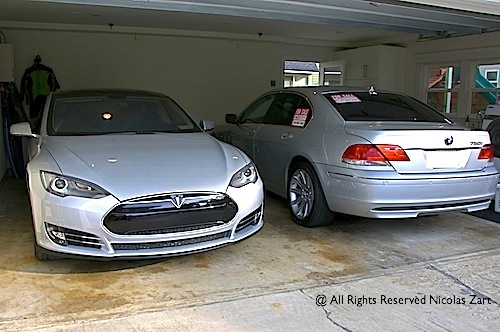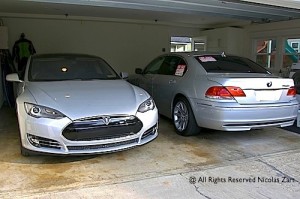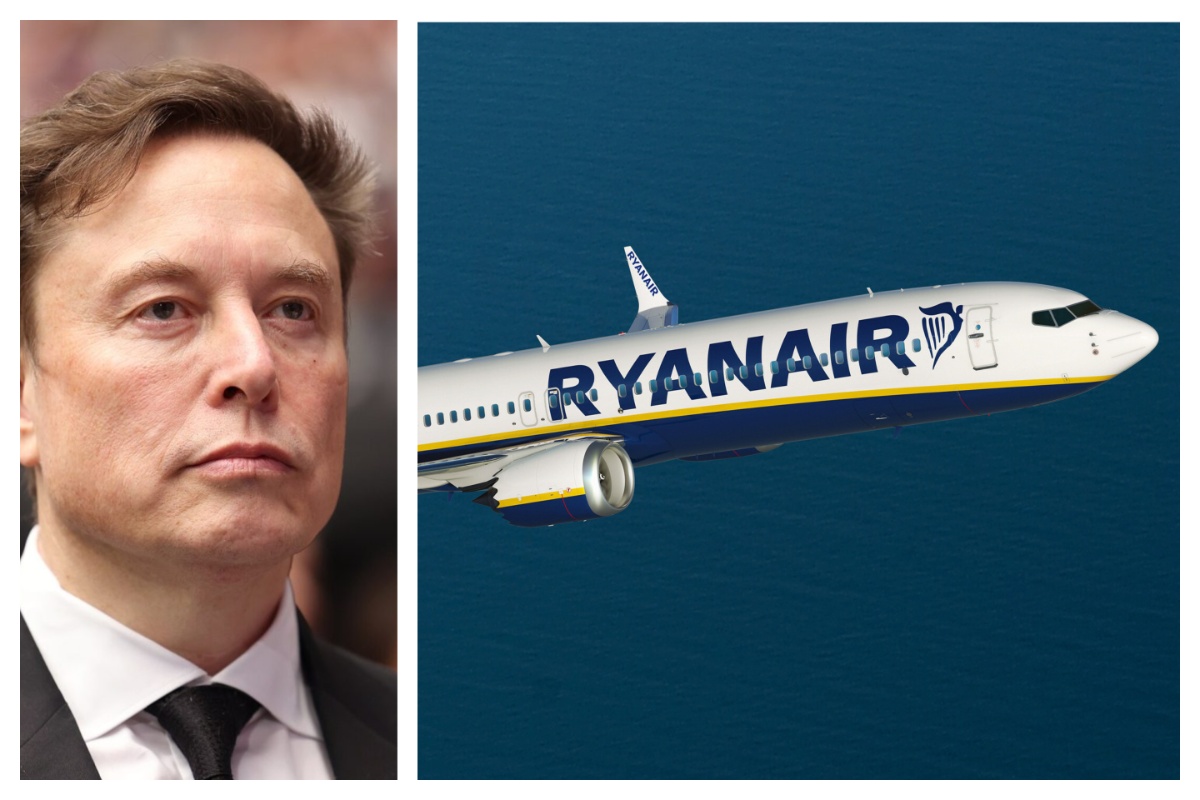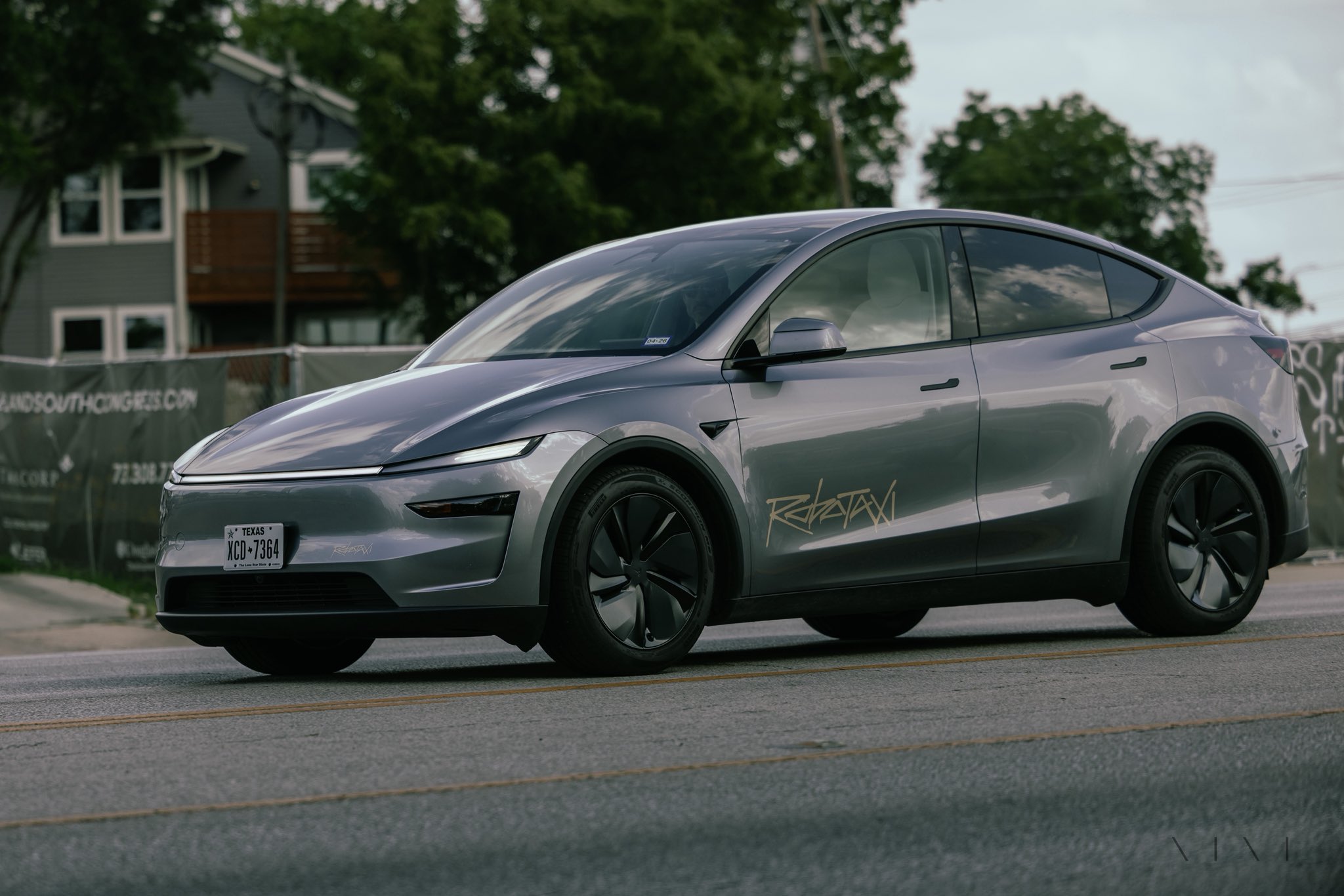News
Are dealerships helping Tesla Motors?

The war the Association of Dealerships is waging against Tesla Motors is odd at best, sad, at worse. Is this the swan song of dealerships in the U.S.A.?
If you build it, they will come to you… not always.
What was once a necessity may not be for tomorrow’s needs. There is no better example of this than today’s continued strange opposition from the Association of Dealership to Tesla Motors selling directly, thus bypassing the middle man. This bizarre little war goes against what every consumer wants, the freedom of choice of how, when and where to purchase products and services.
 Dealerships are not notoriously known for their universal consumer mass appeal. How many people rave about their overall experiences buying a car or coming back for the planned maintenance horror stories? Not too many. Bleeding thousands of dollars every few months, is not terribly exciting, and certainly does nothing to enforce a positive image for dealerships. So why are dealerships pushing hard against the inevitable, that of freedom? Better yet, why haven’t they jumped on the opportunity to add value to their services, instead of forcing an antiquated protectionist system?
Dealerships are not notoriously known for their universal consumer mass appeal. How many people rave about their overall experiences buying a car or coming back for the planned maintenance horror stories? Not too many. Bleeding thousands of dollars every few months, is not terribly exciting, and certainly does nothing to enforce a positive image for dealerships. So why are dealerships pushing hard against the inevitable, that of freedom? Better yet, why haven’t they jumped on the opportunity to add value to their services, instead of forcing an antiquated protectionist system?
Is it time for dealerships to reboot?
The real question is what are dealerships offering now that is needed? Sure, they offer a choice of vehicles, but that is often limited to a brand or two, and often time there’s an ethical conflict of interest. Dealerships offer sound advice. That one can be debated long and wide, but in the end, a salesperson has quotas to meet and wants you to walk away with his car. That person won’t repair the car. That will be left to another department, which makes the accountability part a tricky point.
Dealerships should take this opportunity to stand out. In a survey we once read years ago, car sales people were only above Realtors, both at the bottom of the worse reputation in the U.S.. Why not take this opportunity to reboot the sagging image and show a more innovative face? Why not learn about electric vehicles (EV) and really become the consultants anyone would want? How about becoming the advisors people who don’t have the time to learn about cars need? This would require courage, something any car sales person already had. This would require foresight, something any business person should have. But mostly, this would require being of service to people who don’t have time to shop around and are looking for someone to trust. Why then, take advantage of that trust and pass the bucket down?
A little Tesla direct sales history.
A few years ago, the Massachusetts State Automobile Dealers Association, via its executive vice president Bob O’Koniewski said on AutoNews: “If a manufacturer sees that Tesla is successful with this kind of business model, who’s to say they don’t break out their own EV product lines and create a separate system that bypasses dealers? It’s extremely problematic.”. ‘Bypass dealer’, ‘extremely problematic’, those words explain what a thorn the Tesla model has become for lethargic car dealerships.
Ever since, Tesla Motors has made inroads in an otherwise old and unchanged dealership strategy. Are dealerships opposing something that has to happen? What do they expect to gain, when their image is as low as a flat tire? Take courage boys, stand like men and reinvent one of the most exciting industries in the world. Are dealerships helping Tesla in the long run? You bet.

Elon Musk
Tesla CEO Elon Musk trolls budget airline after it refuses Starlink on its planes
“I really want to put a Ryan in charge of Ryan Air. It is your destiny,” Musk said.

Tesla CEO Elon Musk trolled budget airline Ryanair on his social media platform X this week following the company’s refusal to adopt Starlink internet on its planes.
Earlier this week, it was reported that Ryanair did not plan to install Starlink internet services on its planes due to its budgetary nature and short flight spans, which are commonly only an hour or so in total duration.
Initially, Musk said installing Starlink on the company’s planes would not impact cost or aerodynamics, but Ryanair responded on its X account, which is comical in nature, by stating that a propaganda it would not fall for was “Wi-Fi on planes.”
Musk responded by asking, “How much would it cost to buy you?” Then followed up with the idea of buying the company and replacing the CEO with someone named Ryan:
I really want to put a Ryan in charge of Ryan Air. It is your destiny.
— Elon Musk (@elonmusk) January 19, 2026
Polymarket now states that there is an 8 percent chance that Musk will purchase Ryanair, which would cost Musk roughly $36 billion, based on recent financial data of the public company.
Although the banter has certainly crossed a line, it does not seem as if there is any true reason to believe Musk would purchase the airline. More than anything, it seems like an exercise of who will go further.
Starlink passes 9 million active customers just weeks after hitting 8 million
However, it is worth noting that if something is important enough, Musk will get involved. He bought Twitter a few years ago and then turned it into X, but that issue was much larger than simple banter with a company that does not want to utilize one of the CEO’s products.
The insufferable, special needs chimp currently running Ryan Air is an accountant. Has no idea how airplanes even fly.
— Elon Musk (@elonmusk) January 20, 2026
In a poll posted yesterday by Musk, asking whether he should buy Ryanair and “restore Ryan as their rightful ruler.” 76.5 percent of respondents said he should, but others believe that the whole idea is just playful dialogue for now.
But it is not ideal to count Musk out, especially if things continue to move in the direction they have been.
News
Tesla Robotaxi’s biggest rival sends latest statement with big expansion
The new expanded geofence now covers a broader region of Austin and its metropolitan areas, extended south to Manchaca and north beyond US-183.

Tesla Robotaxi’s biggest rival sent its latest statement earlier this month by making a big expansion to its geofence, pushing the limits up by over 50 percent and nearing Tesla’s size.
Waymo announced earlier this month that it was expanding its geofence in Austin by slightly over 50 percent, now servicing an area of 140 square miles, over the previous 90 square miles that it has been operating in since July 2025.
Tesla CEO Elon Musk shades Waymo: ‘Never really had a chance’
The new expanded geofence now covers a broader region of Austin and its metropolitan areas, extended south to Manchaca and north beyond US-183.
These rides are fully driverless, which sets them apart from Tesla slightly. Tesla operates its Robotaxi program in Austin with a Safety Monitor in the passenger’s seat on local roads and in the driver’s seat for highway routes.
It has also tested fully driverless Robotaxi services internally in recent weeks, hoping to remove Safety Monitors in the near future, after hoping to do so by the end of 2025.
Tesla Robotaxi service area vs. Waymo’s new expansion in Austin, TX. pic.twitter.com/7cnaeiduKY
— Nic Cruz Patane (@niccruzpatane) January 13, 2026
Although Waymo’s geofence has expanded considerably, it still falls short of Tesla’s by roughly 31 square miles, as the company’s expansion back in late 2025 put it up to roughly 171 square miles.
There are several differences between the two operations apart from the size of the geofence and the fact that Waymo is able to operate autonomously.
Waymo emphasizes mature, fully autonomous operations in a denser but smaller area, while Tesla focuses on more extensive coverage and fleet scaling potential, especially with the potential release of Cybercab and a recently reached milestone of 200 Robotaxis in its fleet across Austin and the Bay Area.
However, the two companies are striving to achieve the same goal, which is expanding the availability of driverless ride-sharing options across the United States, starting with large cities like Austin and the San Francisco Bay Area. Waymo also operates in other cities, like Las Vegas, Los Angeles, Orlando, Phoenix, and Atlanta, among others.
Tesla is working to expand to more cities as well, and is hoping to launch in Miami, Houston, Phoenix, Las Vegas, and Dallas.
Elon Musk
Tesla automotive will be forgotten, but not in a bad way: investor
It’s no secret that Tesla’s automotive division has been its shining star for some time. For years, analysts and investors have focused on the next big project or vehicle release, quarterly delivery frames, and progress in self-driving cars. These have been the big categories of focus, but that will all change soon.

Entrepreneur and Angel investor Jason Calacanis believes that Tesla will one day be only a shade of how it is recognized now, as its automotive side will essentially be forgotten, but not in a bad way.
It’s no secret that Tesla’s automotive division has been its shining star for some time. For years, analysts and investors have focused on the next big project or vehicle release, quarterly delivery frames, and progress in self-driving cars. These have been the big categories of focus, but that will all change soon.
I subscribed to Tesla Full Self-Driving after four free months: here’s why
Eventually, and even now, the focus has been on real-world AI and Robotics, both through the Full Self-Driving and autonomy projects that Tesla has been working on, as well as the Optimus program, which is what Calacanis believes will be the big disruptor of the company’s automotive division.
On the All-In podcast, Calcanis revealed he had visited Tesla’s Optimus lab earlier this month, where he was able to review the Optimus Gen 3 prototype and watch teams of engineers chip away at developing what CEO Elon Musk has said will be the big product that will drive the company even further into the next few decades.
Calacanis said:
“Nobody will remember that Tesla ever made a car. They will only remember the Optimus.”
He added that Musk “is going to make a billion of those.”
Musk has stated this point himself, too. He at one point said that he predicted that “Optimus will be the biggest product of all-time by far. Nothing will even be close. I think it’ll be 10 times bigger than the next biggest product ever made.”
He has also indicated that he believes 80 percent of Tesla’s value will be Optimus.
Optimus aims to totally revolutionize the way people live, and Musk has said that working will be optional due to its presence. Tesla’s hopes for Optimus truly show a crystal clear image of the future and what could be possible with humanoid robots and AI.








